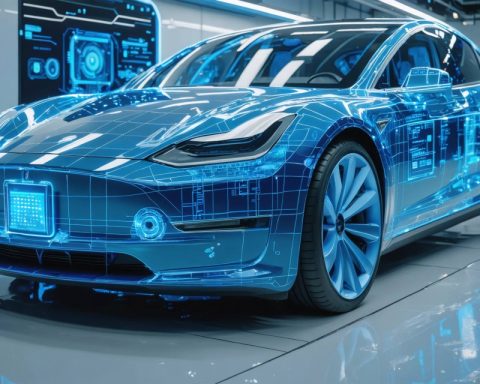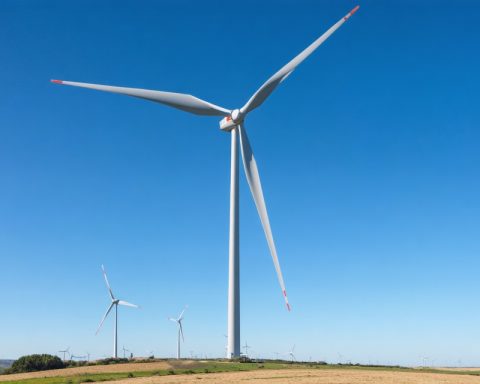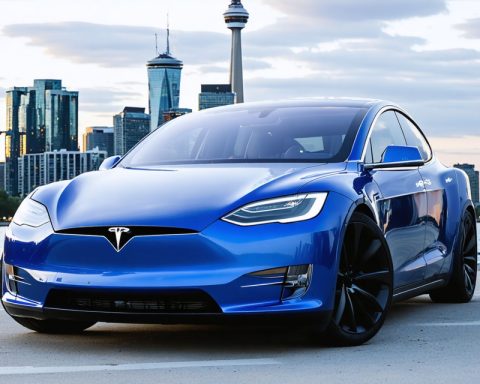- Electric vehicles (EVs) are significantly impacting the automotive sector as drivers shift from gas-powered cars to eco-friendly alternatives.
- A new tax proposal on EVs aims to address road funding shortages traditionally covered by gasoline taxes.
- This proposed ‘fuel tax’ for EVs seeks to ensure fair contributions to road maintenance as more vehicles shift from fueling to charging.
- Debate arises around the potential impact of the tax, with proponents supporting a revised funding model and critics fearing it could hinder EV adoption.
- The central issue is finding a way to fund infrastructure without deterring the transition to environmentally friendly vehicles.
- The future of transportation funding is at a decisive point, requiring solutions that balance fiscal needs with environmental goals.
A quiet yet powerful revolution hums along the open roads—electric vehicles are silently making their mark. As more drivers trade gas-powered engines for eco-friendly alternatives, the winds of change sweep through the automotive landscape. However, an unexpected roadblock may lie ahead.
In the heart of vibrant discussions on sustainable transportation, policymakers are grappling with a new tax proposition that could affect this electric revolution: a potential fuel tax on electric vehicles. This proposal aims to address a growing concern—a potential shortfall in road funding traditionally supported by gasoline taxes.
Imagine a future where highways glisten not only with sunlight but also with an increasing number of electric vehicles (EVs), each promising reduced emissions and quieter streets. Yet, as EVs glide down these newly constructed lanes, questions arise about who should fund road maintenance and development.
Lawmakers are considering a perplexing dilemma. Traditional gasoline taxes, which effectively channel funds into maintaining highways and infrastructures, fall short as more vehicles charge rather than fuel up. Thus emerges the controversial suggestion of a ‘fuel tax’ for electric vehicles—a fee that seeks to balance the fiscal scales and ensure that all drivers contribute equitably to road upkeep.
As debate fans across state legislatures, the ramifications of this proposal spark spirited conversations among drivers and environmentalists alike. Proponents argue that adapting the road funding model to include EVs is a necessary evolution, given the shifting landscape of vehicle technology. Critics, however, caution that such a tax might stifle the adoption of greener technologies, potentially hampering the environmental gains championed by EVs.
The key point resonates with simplicity: ensuring sustainable infrastructure funding is crucial, but achieving this without deterring the shift to environmentally friendly vehicles presents a complex challenge.
Amidst this evolving narrative, one thing remains clear: the future of transportation funding lies at a crossroads, demanding innovative solutions that balance fiscal responsibility with environmental stewardship. As policymakers consider this proposition, the world watches keenly, contemplating the next turn this electric journey will take.
Could a New Tax Roadblock Slow Down the Electric Vehicle Revolution?
Introduction: Navigating the Future of EVs Amidst Emerging Tax Challenges
The rise of electric vehicles (EVs) promises a more sustainable and environmentally friendly future. Yet, as these silent road warriors gain momentum, the traditional mechanisms of funding road infrastructure, primarily through gasoline taxes, face obsolescence. This article delves into the nuances of introducing a fuel tax on electric vehicles, exploring potential impacts, future trends, and strategies for sustainable funding without deterring EV adoption.
Understanding the Proposed Electric Vehicle Tax
1. Rationale Behind the Proposed Tax: With the increase in EV adoption, traditional fuel taxes are generating less revenue. This shortfall threatens the maintenance and expansion of road infrastructure. A proposed EV tax aims to create a fair contribution mechanism, ensuring all road users pay a share for infrastructure use and maintenance.
2. Impacts on EV Adoption:
– Potential Slowdown: Critics voice concerns that additional taxes could deter potential buyers, slowing the transition to cleaner vehicles. This goes against governmental and environmental goals to reduce carbon footprints.
– Balancing Act: Proponents argue that a gradual implementation or a mileage-based fee could be more palatable, thus maintaining momentum for the electric shift.
How-To Steps & Life Hacks for Navigating New EV Taxes
1. Research and Plan: Stay informed about your state’s legislature regarding EV taxes. This will prepare you for any potential financial adjustments needed when purchasing an EV.
2. Leverage Incentives: Check for available federal or state incentives that might offset the proposed tax. These can include tax deductions, rebates, or access to HOV lanes.
3. Consider Long-Term Savings: Despite new taxes, EVs often offer savings in fuel and maintenance over time, which can outweigh initial tax expenses.
Industry Trends and Forecasts
– Trend of Shift to Mileage-Based Fees: Many states are considering transitioning from fuel-based taxes to mileage-based fees, which would apply more equitably to all vehicles, regardless of power source.
– Global Perspective: Countries like Germany are exploring similar tax structures to fund infrastructure sustainably as they promote electric mobility.
Pros and Cons Overview
– Pros:
– Equitable funding that addresses declining gasoline tax revenues.
– Encourages responsible use of road infrastructure by all vehicle users.
– Cons:
– Potential deterrent to EV adoption.
– Additional financial burden on consumers during economic recovery phases.
Real-World Use Cases
– Oregon’s Pilot Program: The state has initiated a pilot program for a road usage charge based on vehicle miles traveled (VMT), setting a precedent for mileage-based taxation.
Security & Sustainability
– Sustainability Goals: A well-implemented tax could contribute to sustainable road maintenance funding, supporting long-term infrastructure development without compromising environmental goals.
Expert Insights and Recommendations
– Expert Opinions: Many experts recommend a balanced approach, where EV taxes are carefully scaled and possibly integrated with ongoing incentives to encourage green vehicle adoption while maintaining infrastructure funding.
Conclusion: An Action Plan for Readers
– Stay Informed: Keep up with legislative developments in your area concerning EV policies and incentives.
– Leverage Incentives and Plan Your Purchases: Utilize existing incentives and plan finances around potential new taxes to make informed purchasing decisions.
– Advocate for Fair Policies: Engage in discussions and advocate for fair and balanced EV taxation policies that support sustainable transport infrastructure without stifling innovation.
For further exploration on the future of vehicle sustainability, visit Tesla’s website for EV-related updates and innovations.
By understanding the complexities and anticipating the impacts of such tax propositions, individuals and policymakers can collaboratively steer towards a future where innovation and sustainability go hand in hand.

















